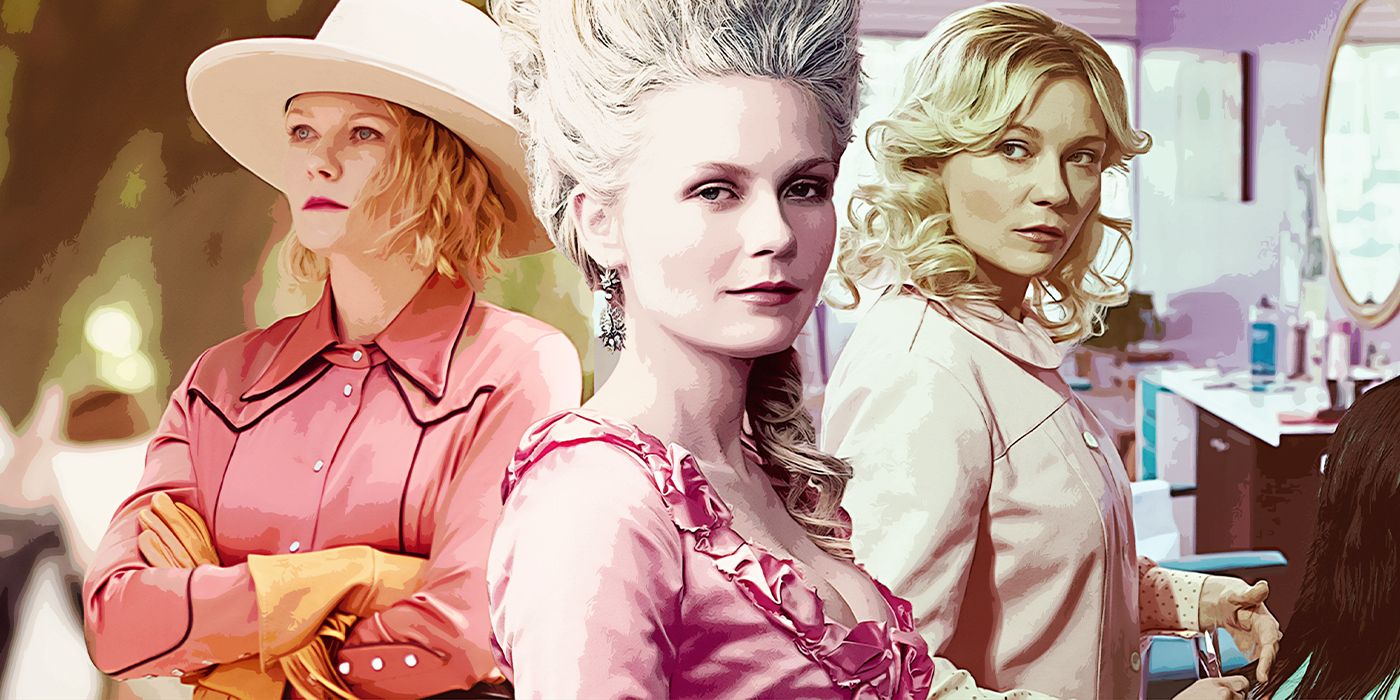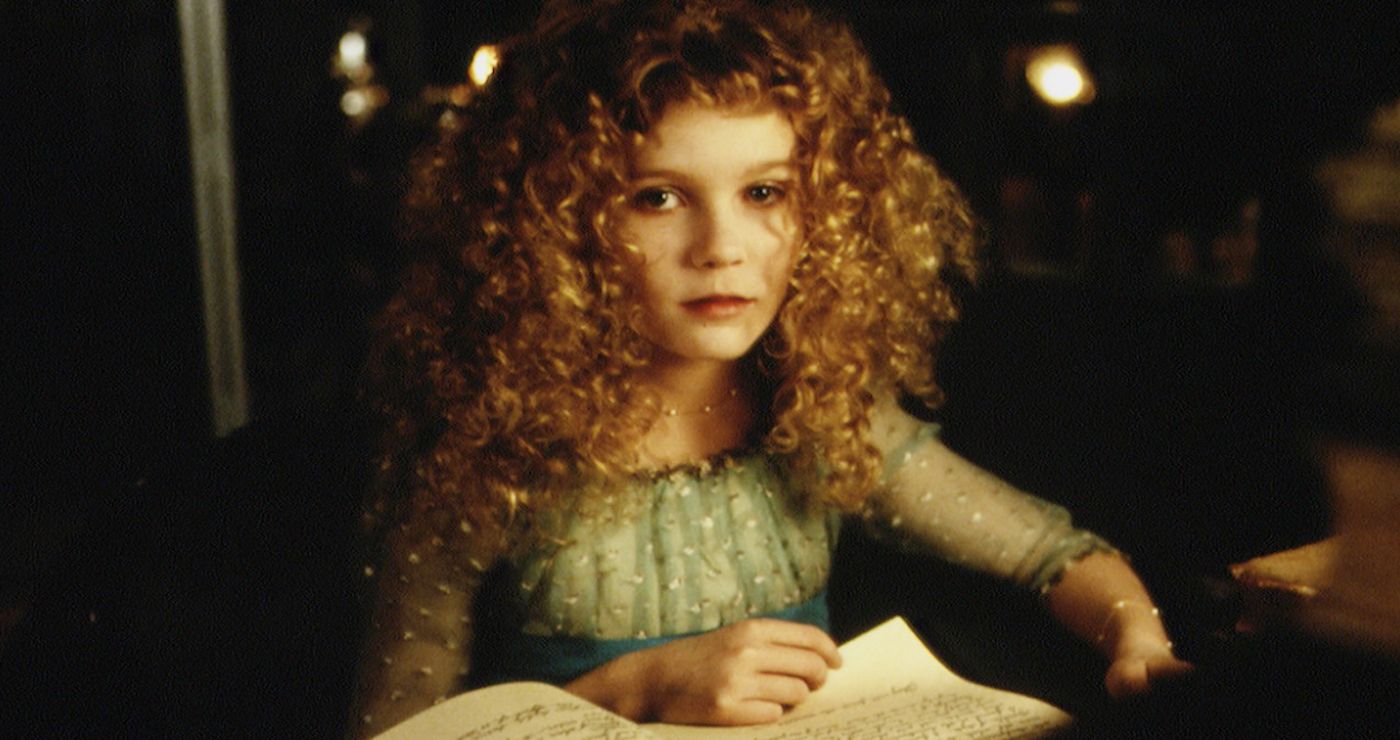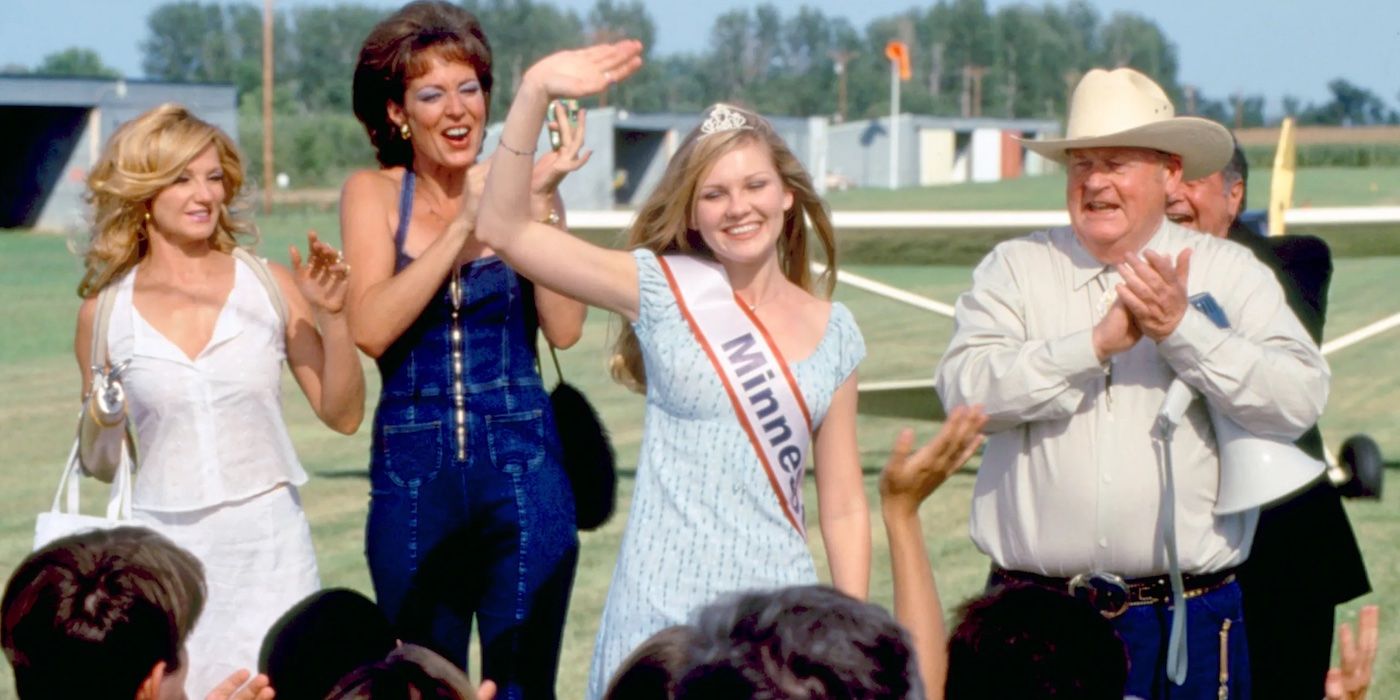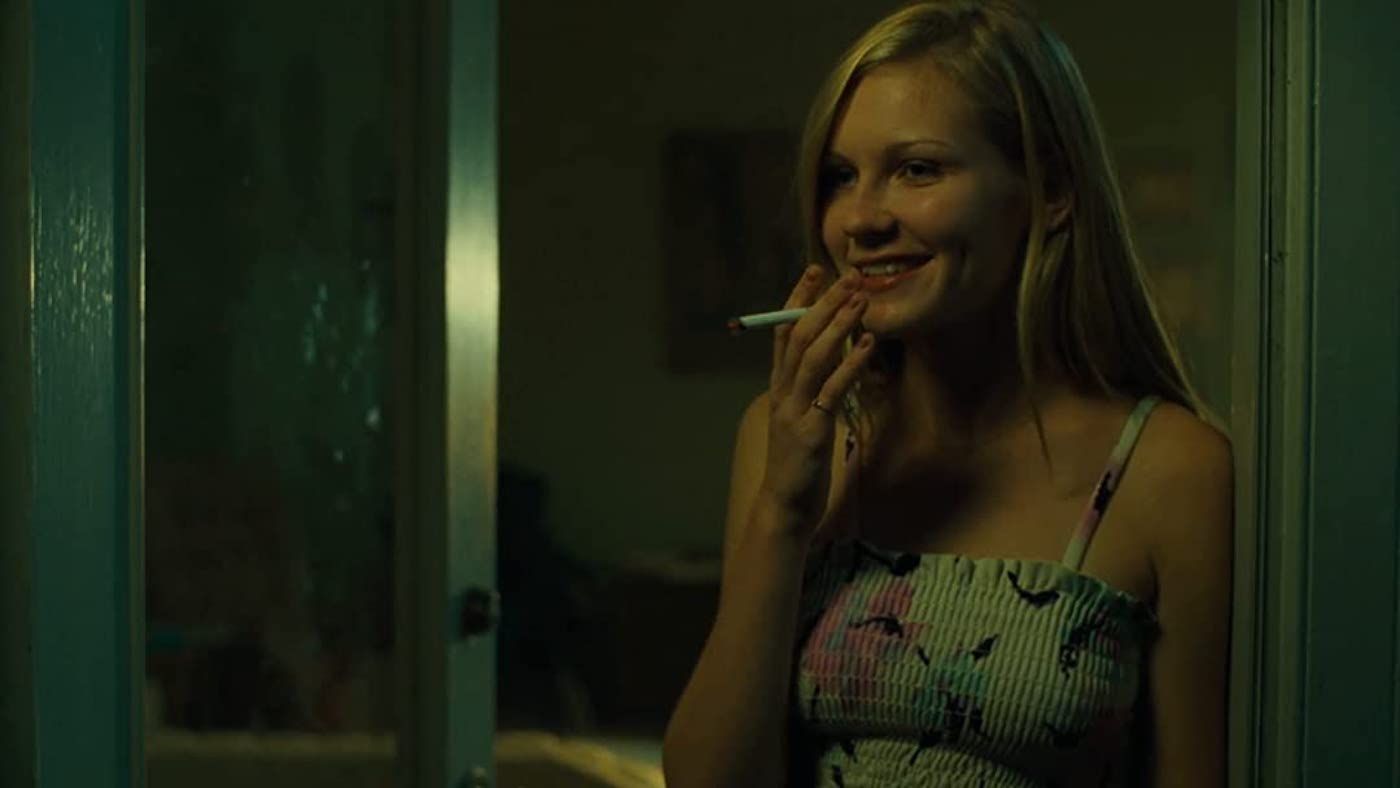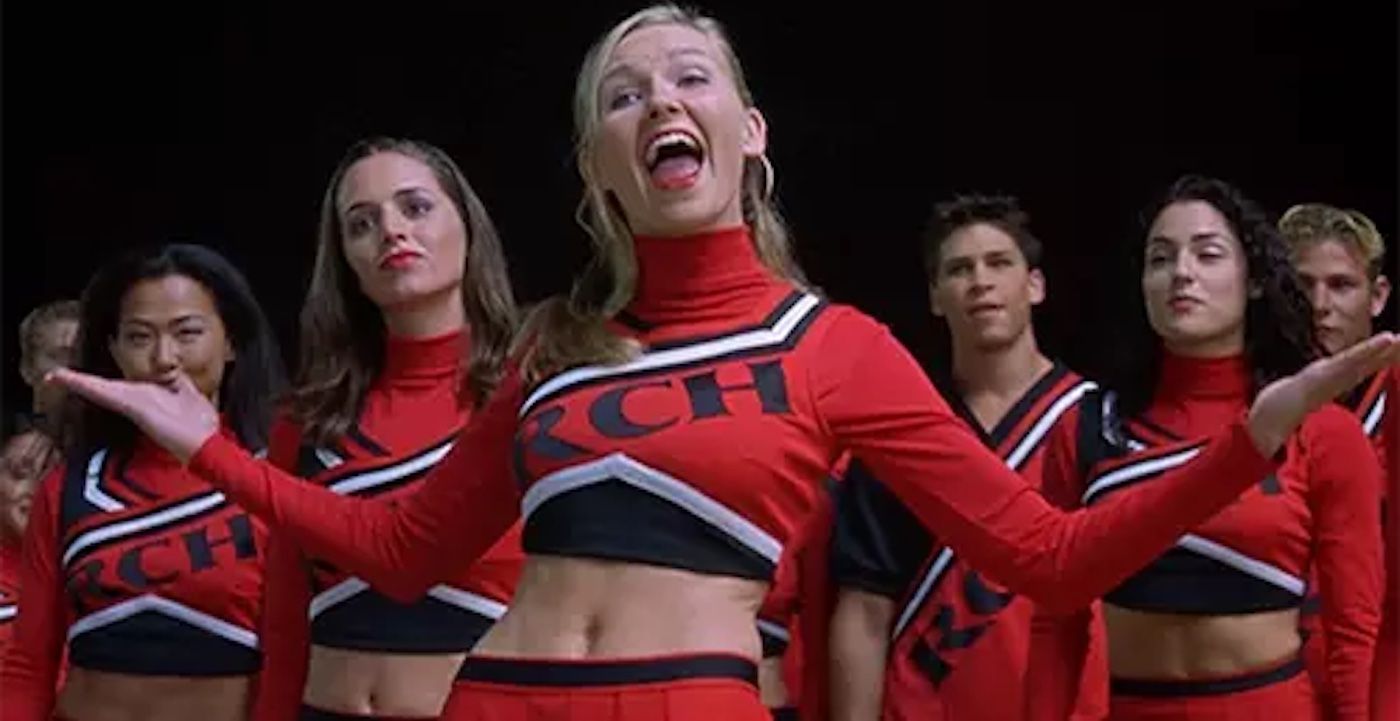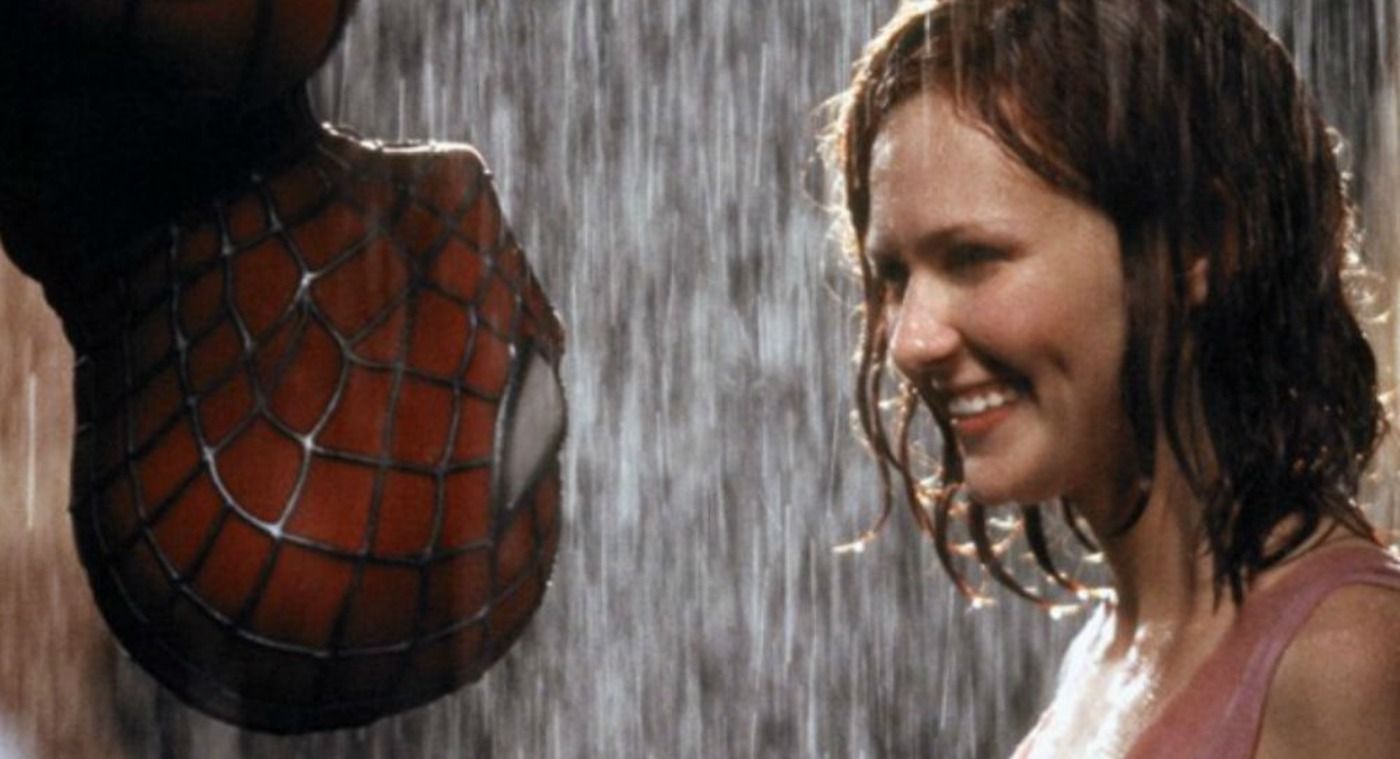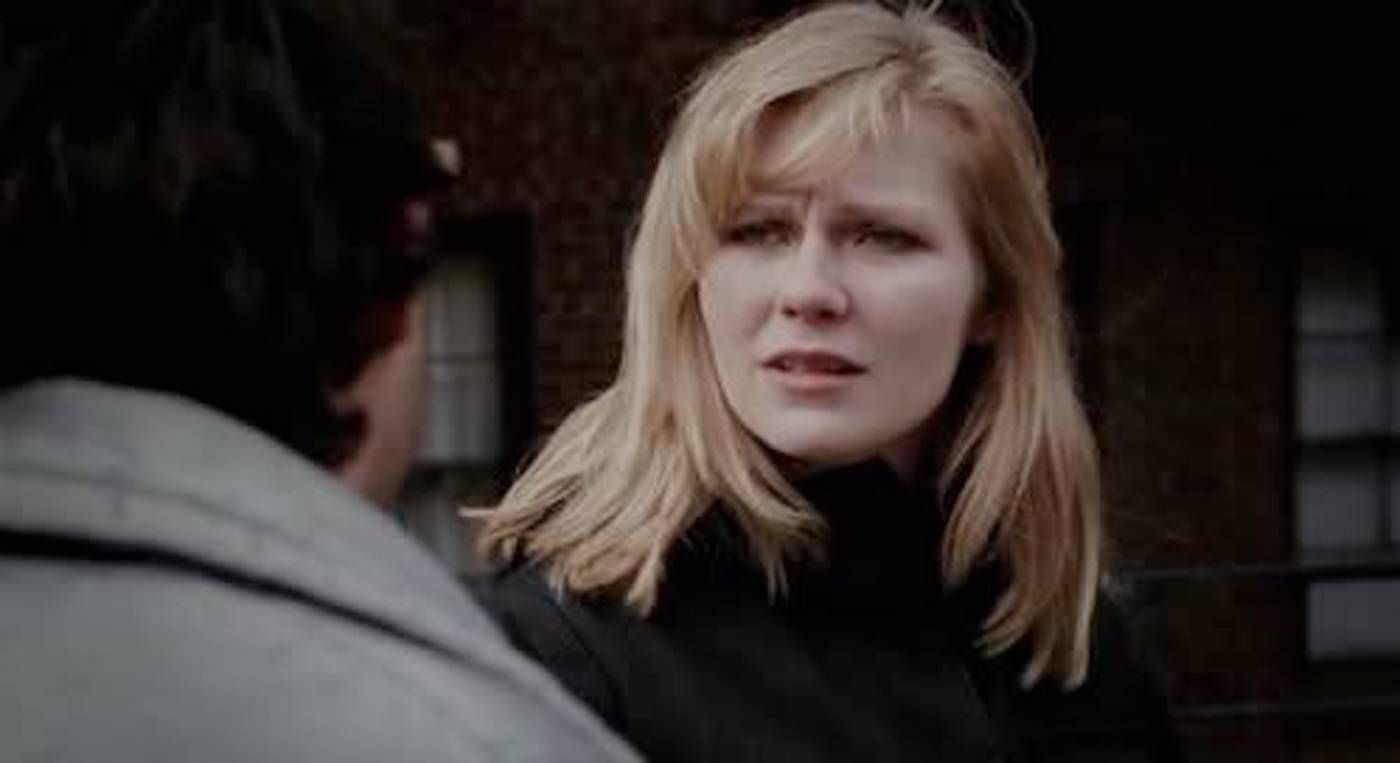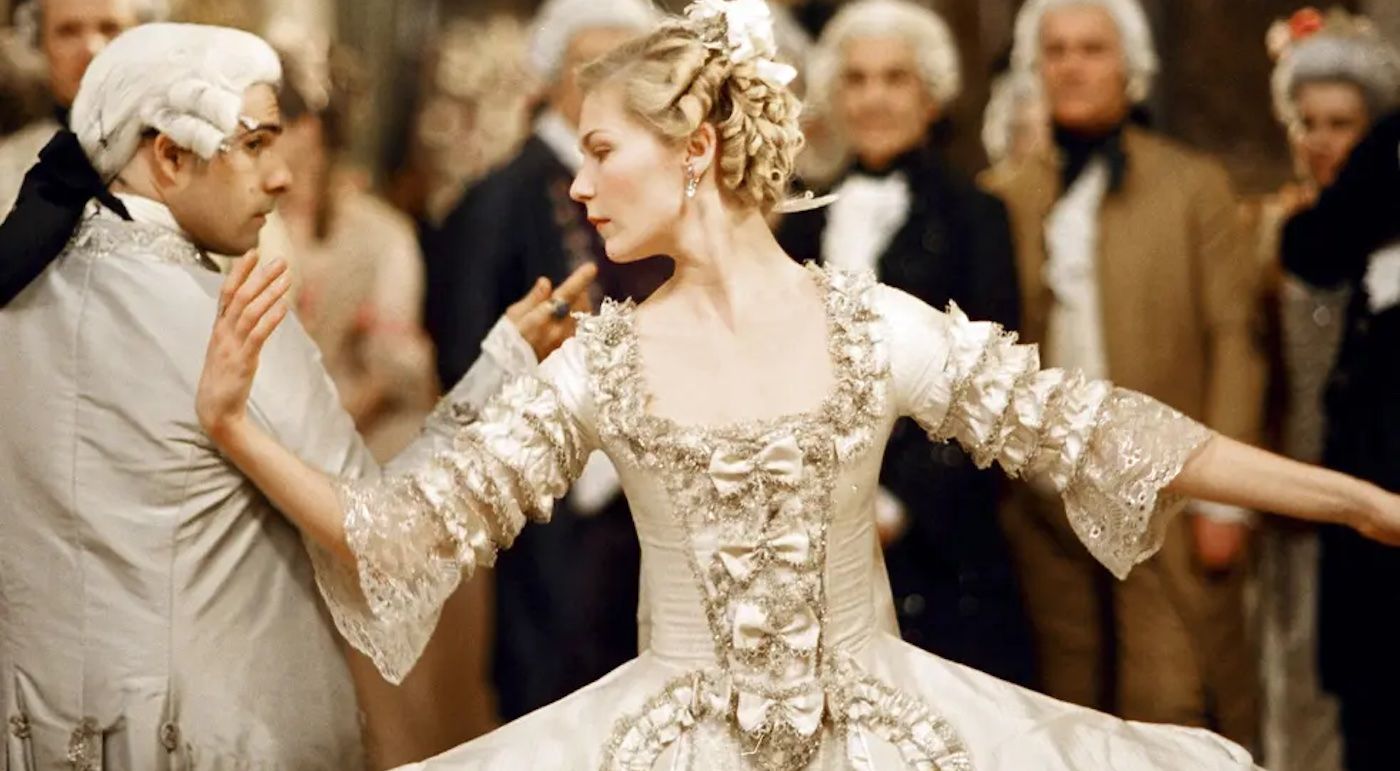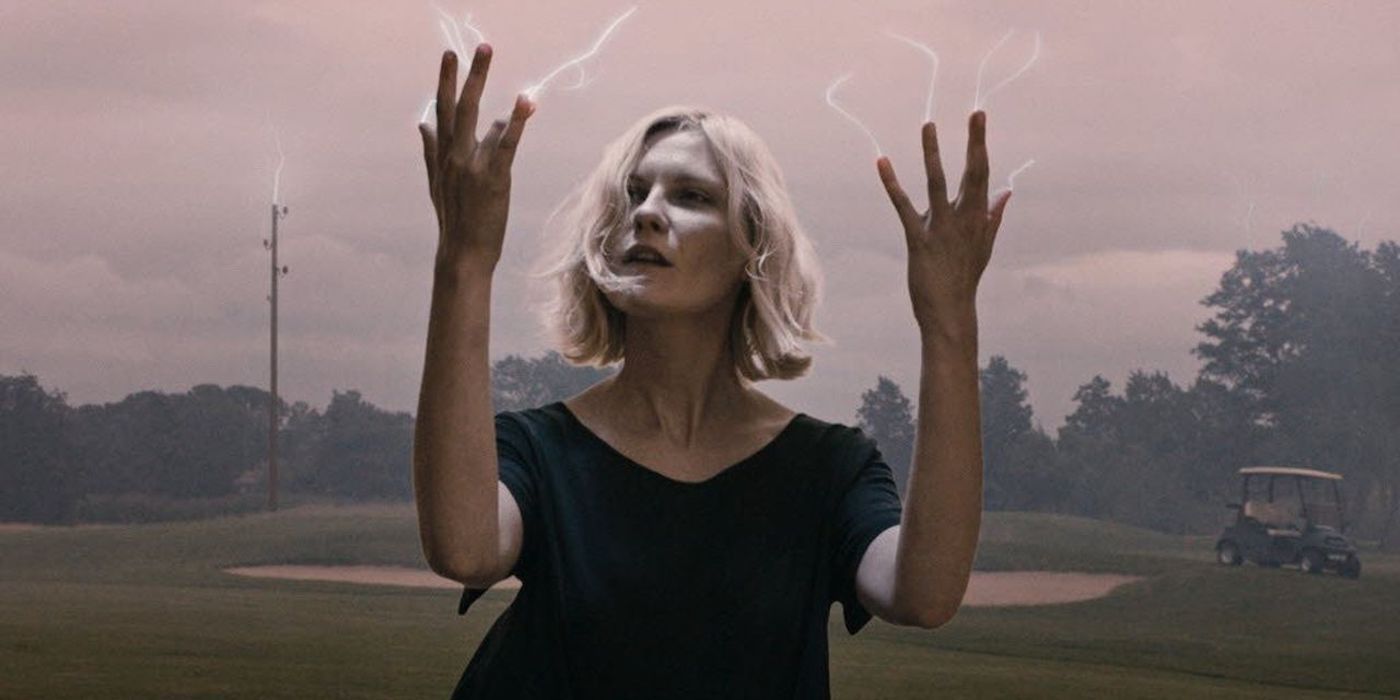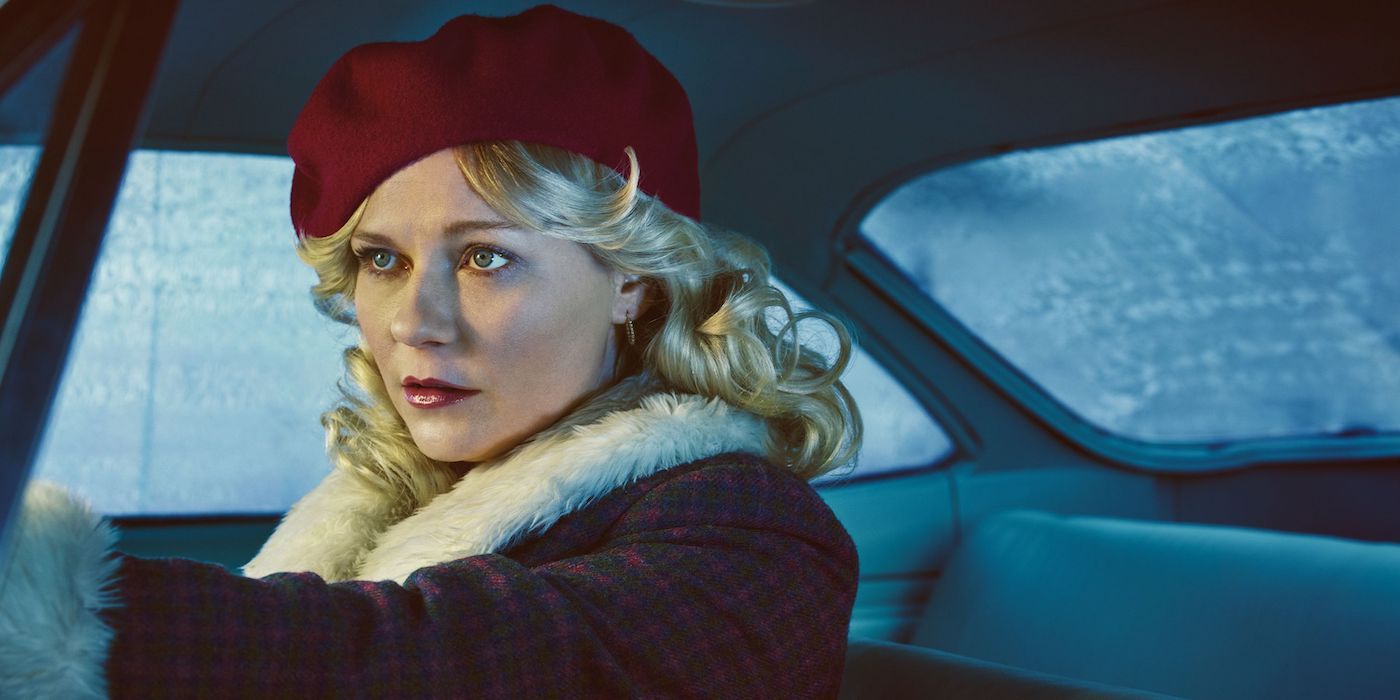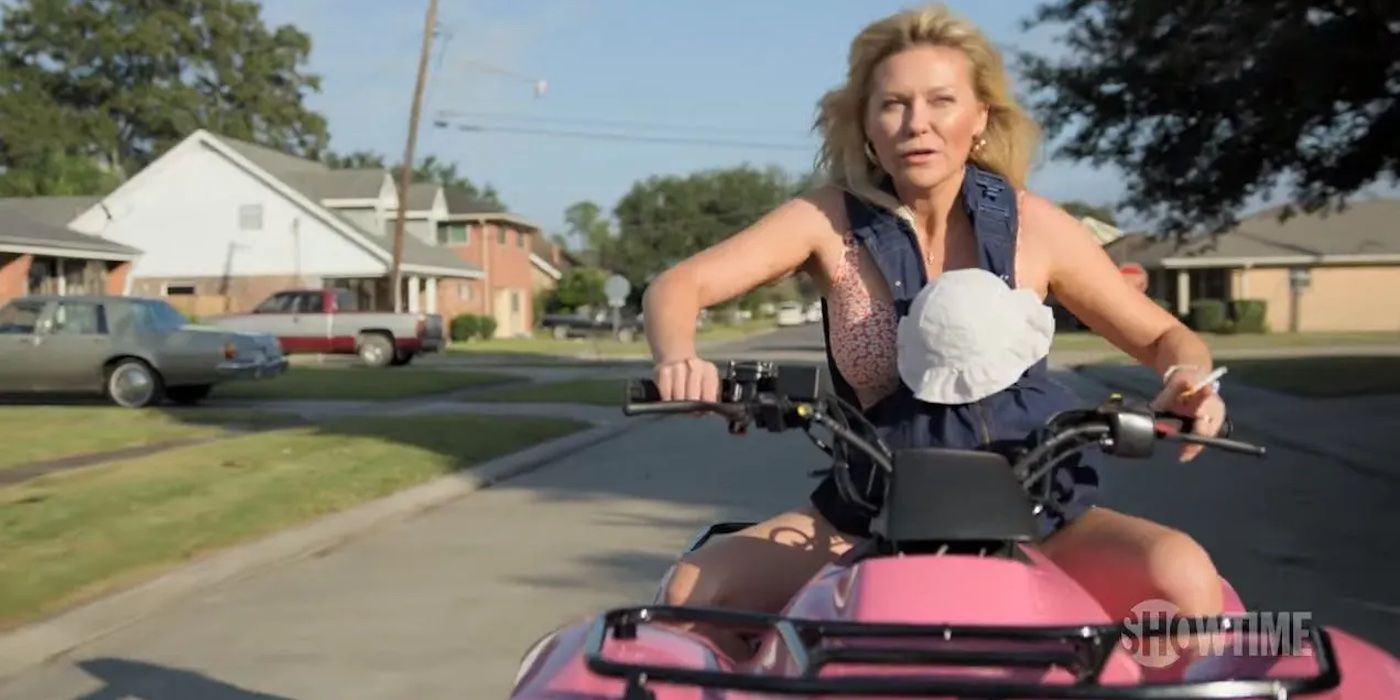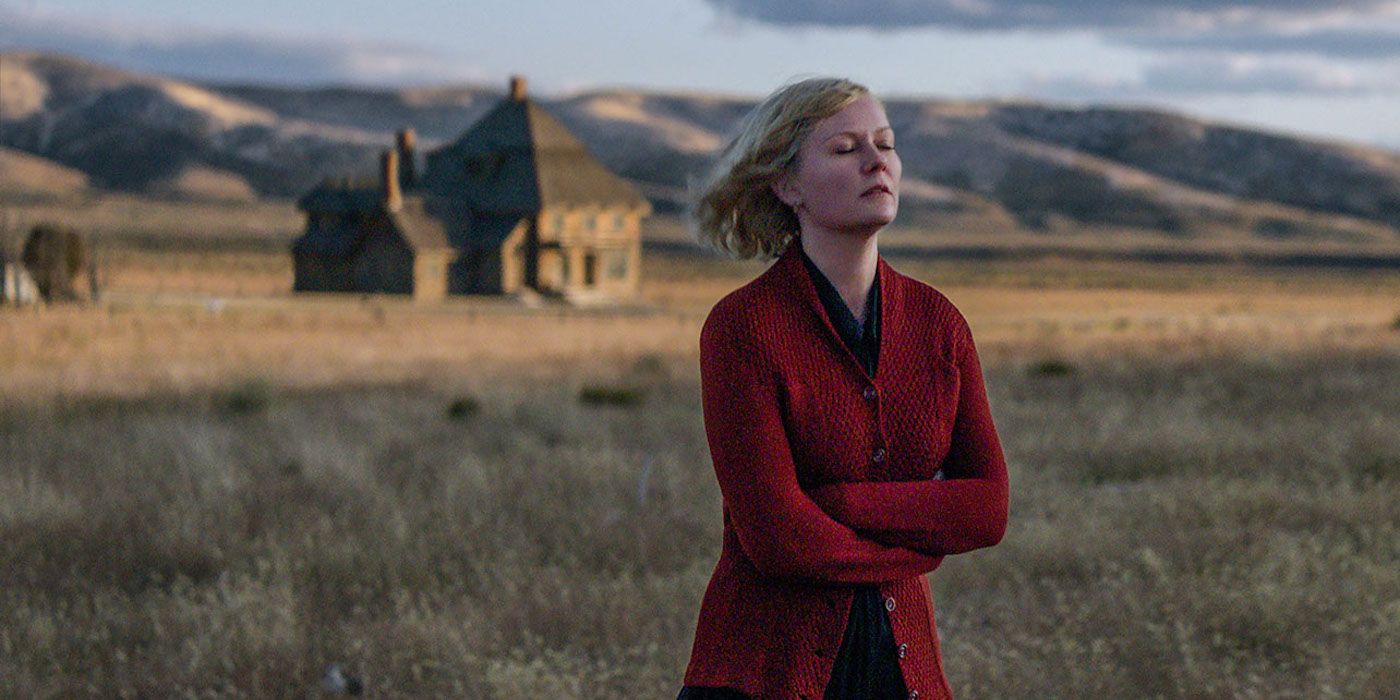Kirsten Dunst has been taken for granted for too long. A consistently excellent actress since childhood, Dunst’s career has taken her from superhero blockbusters to black comedies to arthouse dramas; in each case, she adapts to the material and fits seamlessly into the universe of each film. (Clunkers are rare and usually the result of poor direction, like Elizabethtown.) But for someone with so many iconic performances, she hasn’t gotten quite as much recognition as she deserves; she only recently got her first Oscar nomination almost thirty years after her breakout.
Here are eleven of Kirsten Dunst’s greatest performances, displaying her versatility, sensitivity, and power.
Claudia in Interview with the Vampire (1994)
Contrary to the usual type-casting child actors deal with, Dunst’s breakthrough performance as Claudia in Interview with the Vampire remains something of an anomaly in her filmography. While she has played many complicated women over the course of her career, she has yet to play another character as full of violence and fury as Claudia. It would be a tough act to follow: as an ageless vampire in the body of a young girl, Dunst is not a mere brat but a figure of towering rage. Her temper tantrums are Biblical in their intensity, and her screams come from a place of genuine anguish - to say nothing of her predilection for murder. Watching her, it’s easy to believe that she has lived a hundred years, full of angst and loneliness.
Amber Atkins in Drop Dead Gorgeous (1999)
The late 90s and early 00s were an extremely busy time for Kirsten Dunst, who starred in box office hits and critical favorites alike. At first glance, Drop Dead Gorgeous appeared to be neither. The acerbic mockumentary about a small-town beauty pageant was ignored by audiences and dismissed by critics. However, it soon amassed a cult following, appreciating the film’s campy absurdity, sharp dialogue, and stacked cast (including Ellen Barkin, Allison Janney, and the debut of Amy Adams.) At the center of it all is Dunst’s Amber Atkins, an optimistic girl who dreams of becoming a broadcast journalist and possesses freakishly good luck. It can be hard to root for a character who seems to fall ass-backward into success, but Dunst imbues Amber with irresistible pep; more importantly, she never plays Amber as an idiot, but rather someone who patiently plugs away until opportunity knocks (or blows up Denise Richards’ parade float.)
Lux Lisbon in The Virgin Suicides (1999)
Roger Ebert astutely compared The Virgin Suicides to Picnic at Hanging Rock, another novel-turned-movie about the mysterious departure of teenage girls. Like the Australian schoolgirls who vanished into the wilderness, there is no straight answer as to why the Lisbon sisters killed themselves. There are possibilities - strict parents, teen heartbreak, etc. - but the only ones who know for sure are five dead girls in suburban Michigan. The first of several collaborations between Dunst and Sofia Coppola, The Virgin Suicides makes Lux the most prominent of the sisters, falling for a handsome athlete (Josh Hartnett) and inviting boys over for clandestine encounters on the roof. Dunst is, of course, a warm, engaging presence, but in her expressive face and wistful demeanor lies the soul of the movie. She is easy to love and impossible to know, conveying a vast inner life that no one else, least of all the neighborhood boys, could possibly understand.
Torrance Shipman in Bring It On (2000)
Bring It On would eventually become a direct-to-video franchise steeped in cliché, but the Peyton Reed original is a surprisingly fresh take on the typical high school sports movie. It’s one of the few films to take cheerleading seriously as a sport in its own right, and neither of the rival squads are portrayed as the villain. The presence of Dunst as Torrance Shipman grounds the movie and lends it real emotional stakes. Bring It On has some fun with the preppy, ultra-competitive cheer captain archetype (again, her name is Torrance Shipman), but Dunst never plays her as an archetype. When she’s with her friends, she’s lively and sweet; when she’s chewed out by the former captain, she’s devastated; and when she’s doing her routine, she sparks like a firecracker. It’s a deft performance, light on its feet, and exactly right for a movie that’s just cheesy enough to work. Go Toros!
Mary Jane Watson in Spider-Man (2002)
Dunst would appear as Mary Jane Watson in all three films of Sam Raimi’s Spider-Man trilogy, but the first film was the only one where she wasn’t hamstrung by poor writing choices. Playing a more serious, less quippy MJ than her comic book counterpart, Dunst makes the emotional weight feel earned. She may literally be the girl next door for Peter Parker (Tobey Maguire), but when she storms out of that door after a screaming match with her abusive father, it’s clear that she’s more than a stock character. (Dunst’s embarrassed, face-saving smile when she sees Peter saw the end of the fight is a great, poignant little moment.) And of course, most impressively, she managed to believably kiss someone hanging upside-down!
Mary Svevo in Eternal Sunshine of the Spotless Mind (2004)
For much of Eternal Sunshine of the Spotless Mind, a first-time viewer might find themselves wondering what Kirsten Dunst is doing there. She was billed third beneath the two main stars, and yet her character initially appears to be nothing more than a receptionist at the futuristic memory-erasing company. But soon enough, Mary Svevo’s significance is revealed, foreshadowing the rest of the plot and exploring the dicier implications of the film’s conceit. Dunst is heartbreaking as a woman coerced into forgetting an affair, physically unable to keep herself from making the same mistake again. Even before she learns the truth, there’s a sadness to her: she has a spaciness and an eagerness to please that could be natural or it could be the result of a high-tech lobotomy. And in a deleted scene that really should have stayed in the final cut, Dunst conveys so much hurt and betrayal whilst listening to her tape - rediscovering all the pain she went through.
Marie Antoinette in Marie Antoinette (2006)
When Kirsten Dunst signed on to play Marie Antoinette for Sofia Coppola, there was no need for accent lessons or guillotine fittings. This wasn’t going to be a stuffy costume drama; this was an exercise in Rococo maximalism, with ostentatious production design and an anachronistic post-punk soundtrack. As such, Dunst played what she described as "a perfume" of Marie Antoinette: the essence of a sheltered young woman living in unimaginable splendor. Her Marie is not miserable - it’s hard to be miserable while getting a pedicure and snacking on macaroons - but Dunst brings across a profound sense of alienation that goes beyond the cliché of a lonely rich girl. Demonized by revolutionaries and treated like an interchangeable part by other nobles, Marie can’t even be said to be misunderstood; no one acknowledges that there’s anything to understand in the first place. Dunst plays Marie as a spectator of her own life, someone who indulges in frivolities because they’re the only things she can control.
Justine in Melancholia (2011)
Dunst received ecstatic praise and the Best Actress award at Cannes for her role in Melancholia, but she was overshadowed by director Lars von Trier’s excruciating, Nazi-joke-filled press conference. Once seen as a lock, she was eventually snubbed by the Oscars, which seemed to be a punishment for her director’s actions. What’s even more unfortunate is that Dunst’s performance was not only the best of the year but among the best of the entire decade. Dunst plays Justine, a bride with clinical depression who finds peace when a rogue planet threatens to crash into Earth. Dunst, like von Trier, has spoken openly about her struggles with depression, and her performance is almost uncomfortably realistic. She can barely eat; she rarely speaks above a murmur; she runs from her own wedding reception and sits, catatonic, in a bathtub. But when the titular planet is about to make good on its threat to destroy the world, Dunst plays Justine like she’s near-omniscient. She speaks in a cold monotone about the evil of existence, and her eyes seem to stare off into infinity. The closer doom comes, the calmer Justine gets; when the end arrives (in that breathtaking opening sequence), she’s staring in wonder at her hands, which seem to have lightning crackling from their fingertips. Justine, like Dunst, is at the height of her power.
Peggy Blumquist in Fargo (2015)
Peggy Blumquist, one of the main characters of Fargo’s second season, could have been a caricature. A “Minnesota nice” beautician with a chipper accent and a funny little walk, Peggy runs afoul of the local crime scene and discovers her ruthless side. A lesser actress might have flattened her into a one-dimensional Stepford wife/Serial Mom type, but Kirsten Dunst is much more careful and thoughtful than that. Yes, Peggy has a hilarious violent streak (“Hon, you gotta stop stabbin’ people,” her husband sighs), but it doesn’t define her. Positive and negative traits mix together like ingredients in a hotdish: brightness, ambition, politeness, impulsiveness, gumption, a staggering degree of solipsism, and a somewhat tenuous grasp on reality. In any given episode, Dunst not only embodies those traits but plays each of them for comedy and drama, all while being so charming a viewer might forget about the guy embedded in her car’s windshield.
Krystal Stubbs in On Becoming a God in Central Florida (2019)
“Florida woman Kirsten Dunst plots to take down an MLM in the 90s.” Bam! What could possibly be a better elevator pitch than that? On Becoming a God in Central Florida lived up to its premise, too, not to mention its fantastic title. It was a funny, incisive satire, anchored by a setting as fully realized as Breaking Bad’s Albuquerque - and, of course, by Dunst. She’s never less than gripping as Krystal Stubbs, a tough, resourceful woman fueled by vengeance, pride, and a desire to provide for her baby daughter. She’s game for whatever tonal shifts the show has in store, whether it’s comedy, drama, or even surreal horror - she lands the unvarnished honesty of “people treat me like crap because they can and I don’t know how to stop them” as well as landing lines like “I physically fought myself out of a goddamn vagina tub for no fucking reason.” It would have been a pleasure to see how Krystal’s story developed, were it not for the show's cancelation.
Rose Gordon in The Power of the Dog (2021)
Kirsten Dunst’s long-awaited Oscar nomination finally arrived last month, for her role as Rose in Jane Campion’s masterful The Power of the Dog. On the surface, Rose seems like an atypically passive character for both Dunst and Campion, but there’s a lot for an actor to play with, and Dunst does so with professional ease. At the start, she’s a determined widow and a loving mother to her son; marrying wealthy rancher George (Jesse Plemons, her real-life partner) gives her a lovestruck glow until George’s wicked brother Phil (Benedict Cumberbatch) starts tormenting her. She grows more anxious, more full of self-loathing; she starts drinking again. At her nadir, she’s a childlike drunk, and Dunst gives her a placid, gentle silliness that’s even more heartbreaking than if she turned angry and violent. Eventually, motherly concern rouses her again, and she finds a way to rebel, unwittingly setting Phil’s downfall into motion. Dunst makes Rose a loving, gentle mother who suffers petty cruelty and bears it for as long as she can; thanks to Dunst, the audience might want to help her son make that special rope for Phil.

